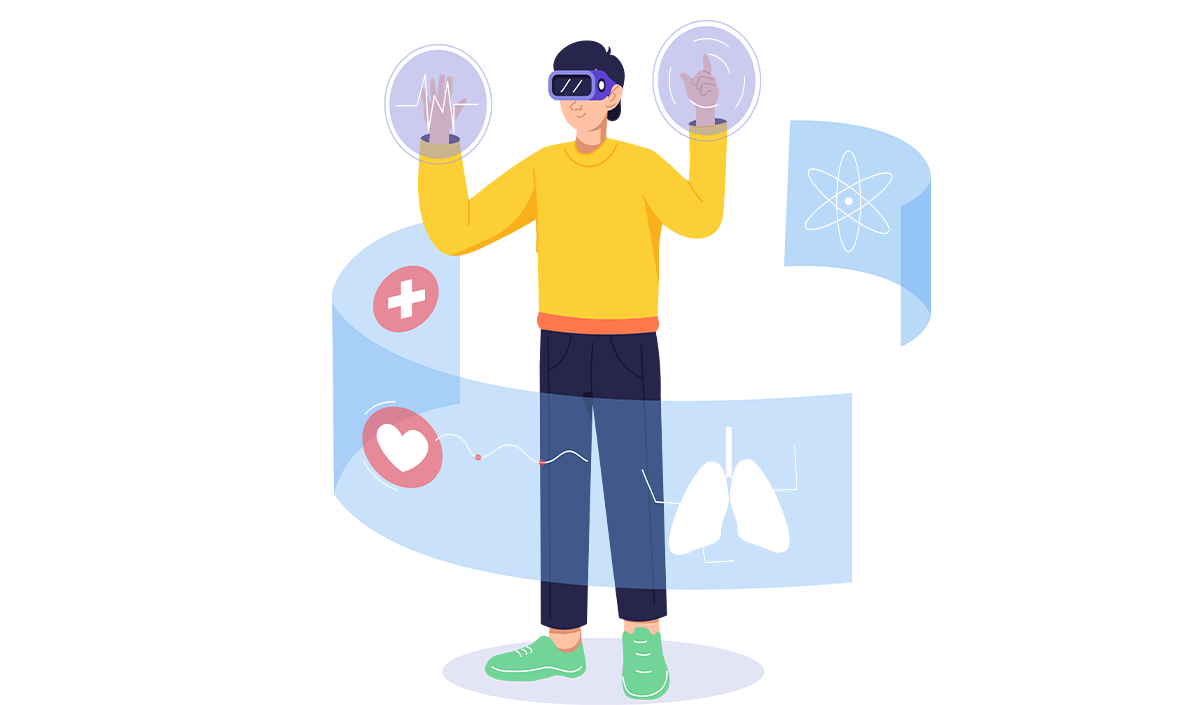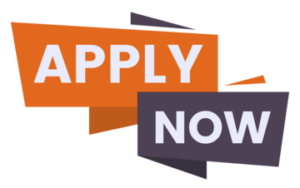This Course Structure is Curated as per the NEP-2020 Guidelines
Course Overview
The B.Sc. Immersive Technology in Healthcare program at Malla Reddy Vishwavidyapeeth, Hyderabad, is an undergraduate course designed to provide students with specialized knowledge and hands-on experience in using immersive technologies, such as virtual reality (VR), augmented reality (AR), and mixed reality (MR), in the healthcare industry. This program prepares students to integrate cutting-edge immersive technologies into medical training, patient care, and rehabilitation processes.
This program focuses on equipping students with the theoretical knowledge and hands- on skills from 1st semester itself. The curriculum covers key areas such as the principles of immersive technologies, their applications in medical education and training, therapeutic interventions, medical simulations, and patient rehabilitation. Students gain practical experience in developing and utilizing VR/AR systems for medical simulations, surgical training, and enhancing patient engagement and recovery through immersive experiences.
Graduates of this program emerge as Skilled Immersive Technology Specialists in Healthcare, ready to contribute to the transformation of medical practices and patient care through innovative technologies. Enabling them to pursue further higher studies & do research in Immersive Technology in Healthcare along with plenty of job opportunities globally.

Course Details
Description: 4 Years Degree Program
No. of Seats: 40
No. of Credits: 160 minimum & as specified
- Eligibility
- Curriculum Structure
- Program Outcomes
- Career Enhancement
- Higher Studies
- Job Roles & Progression
A pass in 10 + 2 with Physics, Chemistry, and Biology/Mathematics as main subjects from a recognized board (CBSE, ISC, or equivalent).
Semester | Name of the Subject |
Semester 1 | Human Anatomy |
Semester 2 | Microbiology |
Semester 3 | Advanced data analytics (R/ SPSS/ STATA/ SAS) |
Semester 4 | Interactive Narrative & Digital Story telling |
Semester 5 | Sensing using ultrasonic LIDAR & RADAR |
Semester 6 | Digital twins for AR/VR/MR applications |
Semester 7 | Digital Transformation of Healthcare |
Semester 8 | Research Project |
- Virtual Reality (VR) and Augmented Reality (AR) Application: Expertise in creating and managing immersive technologies like VR and AR for medical training, patient education, and therapeutic interventions.
- Simulation in Healthcare Training: Proficiency in using simulators for surgical practice, emergency response training, and improving healthcare delivery.
- Human-Computer Interaction in Medicine: Skills in developing user-friendly interfaces and applications for immersive technology in healthcare.
- 3D Modeling and Visualization: Knowledge of creating realistic 3D medical models for diagnostics, education, and surgical planning.
- Integration with Health Systems: Understanding how to incorporate immersive technologies into electronic health records (EHRs) and telemedicine platforms for enhanced patient care.
- Healthcare Data Representation: Techniques to visually represent complex medical data through immersive tools, improving decision-making and patient outcomes.
- Certification in Medical VR/AR Design: Specialized training in developing and deploying VR and AR solutions for healthcare settings.
- Healthcare Simulation Certification: Focused on creating and managing advanced simulation technologies for clinical training and patient care.
- 3D Visualization in Medicine Certification: Expertise in designing and implementing 3D models for diagnostics and surgical planning.
- Human-Computer Interaction Certification: Advanced skills in designing intuitive and impactful user interfaces for immersive healthcare tools.
- Telemedicine Integration Certification: Training in integrating immersive tools into remote healthcare delivery systems.
- M.Sc. in Immersive Technology in Healthcare: Advanced study of VR/AR applications in healthcare, focusing on innovation and practical implementation.
- M.Sc. in Medical Simulation & Visualization: Focused postgraduate study in using immersive technologies for medical education and procedural training.
- Ph.D. in Immersive Healthcare Technologies: Research-oriented program exploring innovations and clinical applications of immersive tools in medicine.
- MBA in Healthcare Technology Management: Combines immersive technology knowledge with management strategies for leadership roles in the healthcare industry.
Duration | Roles and Responsibilities | Salary Range |
0-3 years | Immersive Technology Assistant, VR/AR Healthcare Technician, Simulation Operator | ₹4,00,000 – ₹6,00,000 per annum |
3-5 years | Senior VR/AR Specialist, Simulation Lab Manager, 3D Healthcare Technologist | ₹6,00,000 – ₹9,00,000 per annum |
5-10 years | Immersive Technology Project Manager, Healthcare Simulation Specialist | ₹9,00,000 – ₹15,00,000 per annum |
10+ years | Director of Immersive Healthcare Technologies, Chief Simulation Officer | ₹15,00,000+ per annum |

Fee Structure Per Academic Year
| Tuition Fee | Miscellaneous Fee | Scholarship | ||
| 160000₹ | 10000₹ | Above 90% – 32000₹ | Between 80-90% – 16000 ₹ | Between 70-80% – 8000₹ |
| Tuition Fee | Miscellaneous Fee | Scholarship | |||
| 160000 ₹ | 15000 ₹ | Above 95% – 160000 ₹ | Above 91% – 80000 ₹ | Between 81-90% – 16000 ₹ | Between 71-80% – 8000 ₹ |



